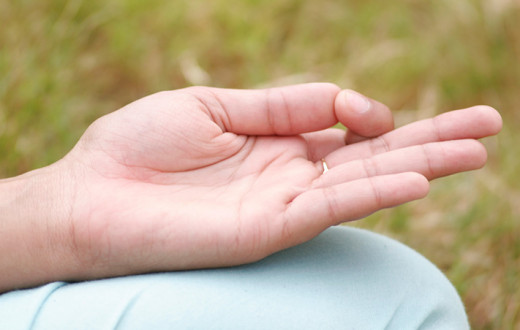Today, the issue of mental illness affects an estimated 350 million people around the world, according to the World Health Organization (WHO). Depression will be the second highest cause of disease burden in middle-income countries and the third highest in low-income countries by 2030 (1). Statistics reveal that 26 percent of the population in the United States has some kind of mental illness (2), and 25 percent of Europe is suffering from depression or anxiety (3).
Unfortunately, many people don’t even acknowledge that they are depressed, and nearly 50 percent of major depression goes untreated (4). Neither at school nor at home are we taught how to our handle negative emotions. We teach dental hygiene but forget to teach mental hygiene. Stress does not go away by just talking or advising. We need to learn some techniques and tools to get rid of stress and calm the mind.
Why does an individual get depressed? Some depression may be because one is hanging onto the past or is over-ambitious and anxious about the future. Life, however, is a continuous process of teaching one how to “let go.” Change is the only constant. When one does not acknowledge the phenomenon of change, and becomes stuck to a position, then one can experiences frustration, depression, and so on. Often, you are not aware that you are connected with the whole universe, and you think you are just some small person wanting small little things. How do we get out of this small mind? We must look to enquire into the core of our existence. What is life? Who am I? What do I want? This spirit of self-inquiry can awaken something inside you. Negative emotions can make you sink into depression, and wisdom of the Self can take you out of depression. This is where meditation and breathing techniques can play an important role. They are the tools that help you calm your mind, and make you feel happy from within. Many illnesses can be helped through meditation and breathing techniques. In fact, I would say that meditation is food for the soul.
Meditation has many benefits. When our mind is calm, we are able to make better decisions, thus creating a more harmonious and positive atmosphere around us. There is a significant body of research on how meditation helps improve conditions such as
hypertension, diabetes, heart problems, sleep disorders, and nervous system disorders, among others (5).
Apart from benefiting physical health, meditation improves concentration and helps one be in the present moment. If you observe, the mind vacillates between the past and the future. We are either angry about the past or anxious about the future. Meditation helps bring the mind to the present. When the mind is calm, we are able to perceive things better. When the mind is disturbed, our perception is also disturbed. In daily life, one comes across situations that can be challenging and require us to take effective decisions. These situations often influence to the state of our mind — so much so that we cannot take effective decisions. Neither events in life nor the states of our mind happen with our permission. In fact, the events and states of mind often occur in direct defiance to our wishes.
Meditation can bring about a balance between the different states of the mind. One can learn to switch from the tough aspect to the gentler aspect within you. One can be firm when appropriate and at the same time let go when needed. This ability is present within everyone, and meditation enables you to switch between these states effortlessly. With a few minutes of daily meditation and pranayama (breathing techniques), our thoughts become powerful, and our tasks are accomplished more effectively. Through meditation and breathing techniques, we can cleanse our mind of negative emotions and effectively address mental illness and depression.
Meditation can bring about a big transformation in society.
Footnotes:
(1) See http://www.who.int/mediacentre/news/releases/2010/mental_disabilities_20100916/en/index.html
(2)
See http://www.thekimfoundation.org/html/about_mental_ill/statistics.html
(4)
Ibid
(5)
http://www.mayoclinic.com/health/meditation/HQ01070

By Gurudev Sri Sri Ravi Shankar, Spiritual Leader, Global Humanitarian, Peace Ambassador and Founder, Art of Living Foundation
This article was originally published on Huff Post




























